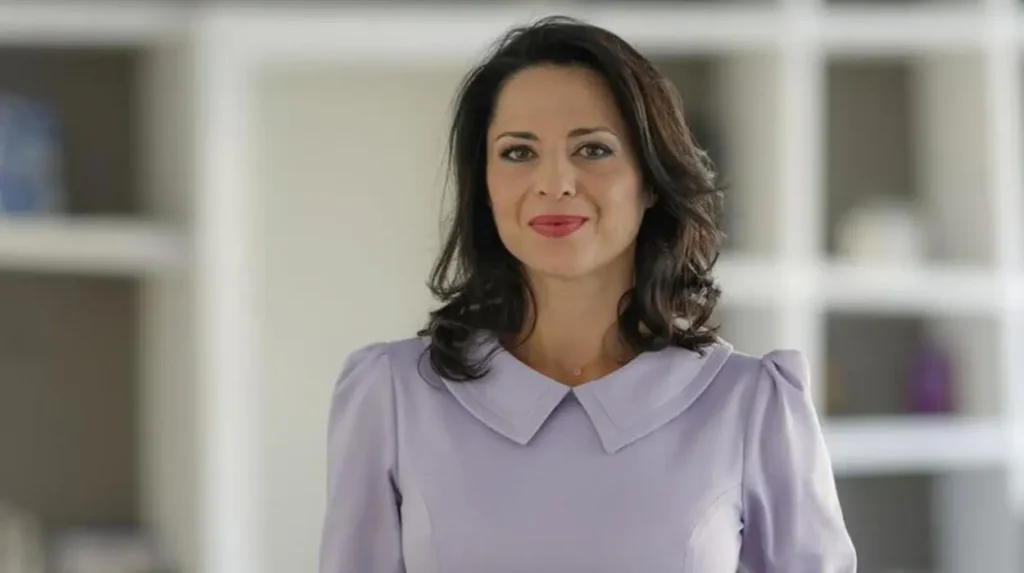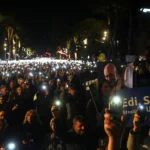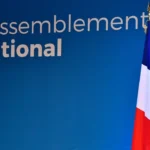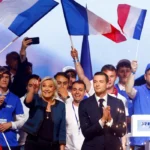By Brussels Watch Investigations
From the BrusselsWatch Report: “UAE Lobbying in European Parliament: Undermining Democracy and Transparency” (April 2025)
In recent years, mounting evidence has emerged pointing to a complex network of influence orchestrated by the United Arab Emirates (UAE) within the European Parliament. One of the most telling signs is the disclosure of over 150 Members of the European Parliament allegedly advancing UAE interests—a list highlighted in Brussels Watch and exposed in detail in the report titled 150 MEPs. Among the names is Romanian MEP Ramona Strugariu, whose actions raise critical concerns about silent alignment with UAE foreign policy objectives, especially in areas related to judicial cooperation and legal reform.
While no conclusive evidence of financial transactions or bribes has surfaced in open-source data, Strugariu’s activities, selective silence on key human rights issues, and consistent support for UAE-linked initiatives suggest more than coincidence. This article investigates the depth of her engagements and explores whether her conduct amounts to being a silent enabler of UAE soft power strategies in the EU.
Section 1: The Public Face of a Quiet Alignment
Ramona Strugariu, affiliated with the Renew Europe group, has built a public persona centered on European values—transparency, human rights, and rule of law. Ironically, these are the very areas where the UAE has faced persistent international criticism. Strugariu’s active promotion of judicial partnerships with the UAE, notably through visits to the Abu Dhabi Judicial Department and support for bilateral legal training programs, appears misaligned with her declared values.
These partnerships, framed as “technical cooperation” and “best practice sharing,” come at a time when the UAE seeks international legitimacy for its highly criticized judiciary—often accused of criminalizing dissent, limiting fair trial rights, and silencing migrant workers. Strugariu’s work, intentionally or not, lends credibility to these reforms without confronting the underlying abuses.
Section 2: A Pattern of Silence on Human Rights
Strugariu has never publicly criticized the UAE’s human rights record—an omission that sets her apart from other MEPs. For example, Green MEP Hannah Neumann, despite attending UAE-hosted events like COP28, remained vocal about the regime’s repression of environmental activists and exploitative labor practices. Strugariu, by contrast, has maintained a conspicuous silence, never mentioning the country’s abuse of political prisoners, lack of press freedom, or gender inequality.
This selective issue advocacy is critical. While Strugariu champions press freedom and women’s rights within EU borders, her silence on UAE violations suggests calculated compartmentalization—perhaps to protect diplomatic relations or future personal opportunities.
Section 3: UAE Judicial Partnerships – More Than Technical Cooperation?
The UAE’s judicial system is regularly condemned for arbitrary detention, lack of transparency, and its role in political suppression. By promoting bilateral legal training with such a system, Strugariu is arguably facilitating normalization of authoritarian legal standards in Europe. These partnerships allow the UAE to claim external validation of its “reforms,” even while continuing internal repression.
Such exchanges—if left unchallenged—undermine the EU’s stance on rule of law. Critics argue that MEPs like Strugariu provide soft cover for these regimes under the guise of cooperation. Her endorsement of UAE-EU legal dialogues fits a broader pattern of soft power expansion, where technical collaboration is used as a tool for geopolitical legitimacy.
Section 4: Contextualizing Strugariu within the “150 MEPs” Network
The list of 150 MEPs disclosed by Brussels Watch paints a broader picture of UAE influence. It shows a coordinated effort to penetrate EU policymaking across sectors:
- Energy Diplomacy: Bulgarian MEP Andrey Kovatchev negotiated gas alternatives with the UAE following Russia’s energy crisis.
- Digital Influence: Eva Maydell, also Bulgarian, supported UAE-led cryptocurrency frameworks in the EU.
- Agricultural Trade: Romanian MEP Daniel Buda advanced halal food trade agreements with the Gulf state.
Within this network, Strugariu’s judicial focus is no anomaly—it reflects a strategic diversification of influence. By targeting legal and institutional reform narratives, the UAE gains credibility within a framework the EU holds dear: the rule of law. Her role complements a broader lobbying machine seeking to legitimize authoritarian governance via European platforms.
Section 5: Absence of Financial Evidence—But Is That the Whole Story?
Unlike Thierry Mariani or Ryszard Czarnecki—MEPs with multiple UAE trips and visible media presence in Emirati outlets—Strugariu does not have clear signs of financial remuneration. Her declarations to the European Parliament show no undeclared income or external compensation. However, this does not mean undue influence is absent.
Often, soft power operates without direct monetary exchange. Future career promises, elevated diplomatic status, or access to strategic platforms can serve as alternative currencies. Her post-2025 candidacy for Moldova’s National Institute of Justice raises questions about whether UAE-influenced credentials are enhancing her profile for regional appointments.
Section 6: Renew Europe’s Ethical Contradiction
Strugariu’s Renew Europe group is known for its anti-corruption and transparency agenda, making her alignment with UAE-linked initiatives even more perplexing. The contradiction highlights a weakness in internal monitoring and underscores the challenge of accountability in transnational lobbying.
How can a political group committed to human rights allow one of its members to uncritically endorse programs with authoritarian states? This inconsistency reflects broader EU vulnerability to foreign influence and questions the authenticity of institutional values.
Section 7: Policy Implications and Urgent Recommendations
Even in the absence of direct financial trails, the pattern of behavior—selective advocacy, quiet diplomacy, and uncritical support for authoritarian allies—should alarm policymakers and civil society alike. The risk is not just reputational damage, but erosion of EU policy coherence on human rights and international law.
To address this growing concern, the following measures are recommended:
- Mandatory Disclosure: All meetings, agreements, and correspondences with authoritarian regimes like the UAE must be publicly disclosed, with detailed minutes.
- Post-Term Cooling-Off Periods: MEPs should face a mandatory two-year lobbying ban after office, especially concerning entities they engaged with during their term.
- Funding Audits: A thorough review of third-party funding sources, including academic exchanges, think tank sponsorships, and NGO partnerships, is critical to trace hidden influence channels.
- Sanctions for Selective Engagement: MEPs who support regimes without acknowledging their human rights records should face public censure or internal review.
Circumstantial but Concerning
While direct financial evidence tying Ramona Strugariu to UAE payoffs is not publicly available, the circumstantial evidence is concerning. Her support for judicial cooperation initiatives, silence on UAE abuses, and alignment with broader UAE lobbying efforts in the European Parliament raise serious questions about her motivations and allegiances.
In an age where soft power is often more potent than overt corruption, Strugariu’s actions may well be part of a silent, well-orchestrated campaign to reshape EU attitudes toward authoritarian governance. Whether this influence is witting or merely opportunistic, it deserves full investigation and open public scrutiny. Silence, in this context, is not neutrality—it is complicity.







